The defender of Azovstal “Nava” wrote a book about the horrors of captivity: her story
[ad_1]
The defender of Mariupol and the former head of the press service of “Azov” Valeria Subotina (Karpylenko) with the call sign “Nava” wrote a book about captivity.
Valeriya lived in Mariupol with her lover, border guard Andriy Subotyn. At first she worked in the press service of “Azov”, then she headed the press service of the Donetsk border unit, and after the beginning of the great war she returned to her native regiment.
The military servicewoman covered the defense of the city, wrote texts in which she talked about the heroism of the defenders of “Azovstal” and the terrible conditions in which they were.
At the surrounded metal plant Valeria and Andrii got married – the rings were made of foil. And in three days Valery’s lover died.
After leaving Azovstal, Valeria was held captive for almost a year: first in Olenivka, then – in Taganrog. During this time, Valeria’s grandmother, who raised her, died in Mariupol.
Now, almost a year after the exchange, a book by “Navy” called “Polon” was published. The defender of Mariupol told “UP. Life” about the book in which she described Russian torture chambers, as well as about life after captivity and the struggle for her fellow citizens.
“Captivity”. Book about pain and rebirth
Valery and Andriy Subotyn, wedding at “Azovstal”
Valeria Subotina (Karpylenko) began to think about writing a book while still in captivity, so she tried to remember everything that happened there.
“We didn’t have paper, pens, pencils, especially in Taganrog. But I tried to remember everything down to the details. This was very important considering the fact that there we didn’t have a voice, we weren’t heard, because we were cut off from the big world. It was important for me to remember everything to become the voice of the captives”– says Valeriya.
In the book, she tells a lot about her life: she describes her childhood, meeting her lover and happy family life in Mariupol. Valeria told how “Azov” became her family.
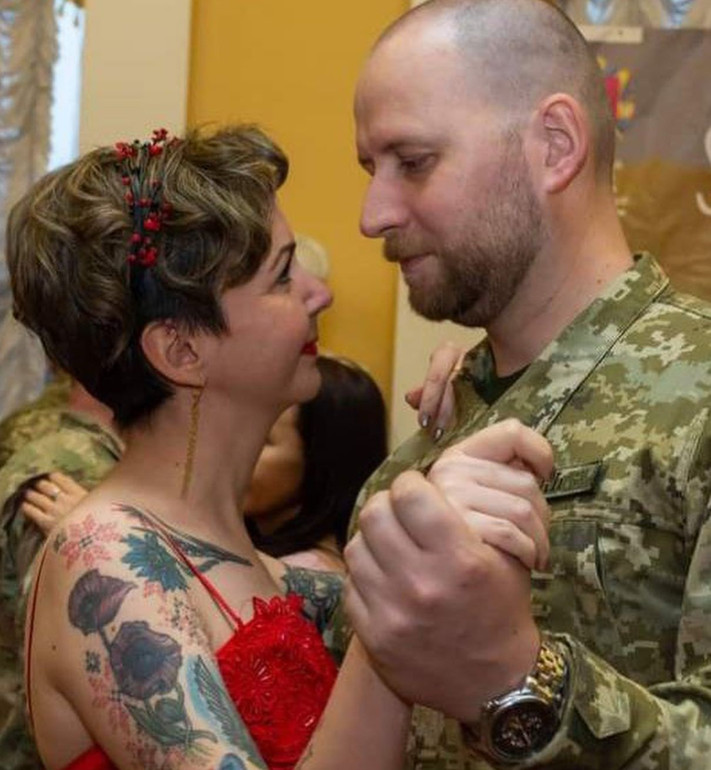
She described the Russian occupiers, escorts, security forces from the FSB and FSIN, who abused the prisoners. Also torture, beatings, harassment…
At the same time, Valeria told about the jokes with the step-sisters, and about “yoga” in a cramped cell, and how the captive girls supported each other.
“Actually, you don’t need a lot of courage to write this book. You just need to know why you are doing it. For me, everything I do has one goal – to continue the informational struggle for our prisoners.
When we discussed the idea of writing this book with the director of the publishing house “Folio” Oleksandr Krasovytskyi, it seemed to me that I would write this book very quickly. But he knew it would be difficult for me.”Valeriya recalls.
A third of the book was written relatively easily, and then Valeria found it increasingly difficult to tackle it. However, she continued to write to recount the horrors of captivity.
“I was supported by the director of Folio, my husband’s parents, and friends, most of whom are also former prisoners of war. We support each other, and it was their faith in me and in this idea that helped me a lot…
What happened to me is not the worst thing yet. Unfortunately, even more terrible things happen in torture chambers. It’s scary to even think about it, but no matter how painful it is, we have to.
Because we only think about them, and someone still remains in these torture chambers, experiencing pain, fear, a sense of helplessness and absolute insecurity.”– emphasizes the military.
Valeria talked about her comrades, described the pain of losing the soldiers who were killed by the Russians in Olenivka on July 28-29, 2022. She also wrote about her feelings for Dmytro “Orest” Kozatsky, who took legendary photos from “Azovstal”. And how the occupiers convinced that he “left her” and moved abroad.
“When you experience all these events, you remember Ukrainian literature and understand that our entire history is cyclical. Not only in suffering, but also in struggle. Our citizens do not give up and continue to fight in any conditions…
I did not think about the heroes of previous centuries and our ancestors, because I was focused on the stories of my brothers. I could not describe some of them, because many of them still remain in Russian torture camps.
Somewhere I changed my nicknames, changed my stories. I thought about my brothers with the hope that they would soon return to freedom, so that I could write their stories together with them, so that people would know how they found the strength to fight, to survive in those conditions and not to despair.”– says Valeriya.
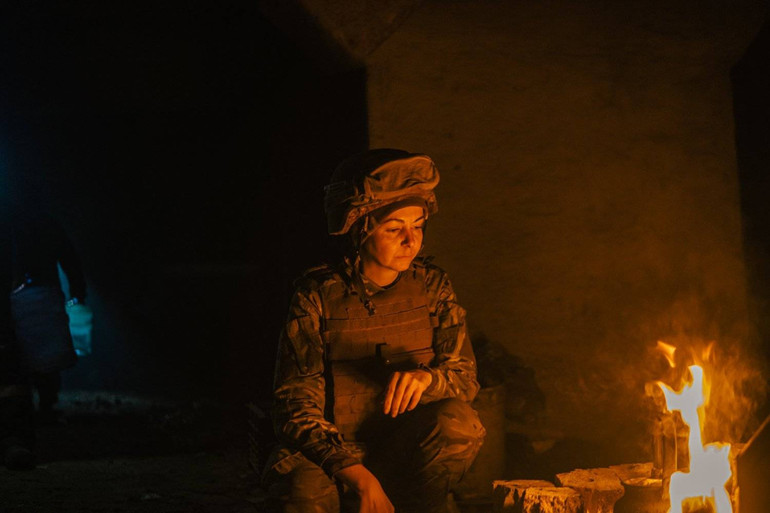
Photo: Dmytro Kozatskyi
Many people write in Valery’s comments that they are not ready to read this book. But she believes that everyone needs to understand what is happening in Russian captivity.
“Of course, a person should not drive himself and cgo home depressed, and instead work constructively and benefit the army. But to understand what is happening to our servicemen in captivity, you need to watch interviews, read as much as possible to understand why this war continues.
That there can be no peace negotiations, that we must continue the struggle, that the enemy will not give us a choice. Our choice is strength, resistance, defense of our own land. There can be no agreements. The result of our agreements can be seen when we left Azovstal. We were promised specific terms of return, specific conditions of detention. And what did Russia do?
This will apply to all of Ukraine if the Defense Forces stop protecting our country, if people don’t care, if they don’t help.”– emphasizes the woman.
In one of the chapters, Valeria described how she worked in the kitchen: bread was baked there in unsanitary conditions, bad flour was used, but the defenders of “Azovstal” still tried to bake better bread for their fellow prisoners.
The prisoners were fed very poorly – for lunch they were given porridge with whiting fish, which contained entrails. “Nava” mentions that in captivity they were constantly thinking about food.
She even thought about how she would prepare this bread and porridge with fish, but from good products and at home.
“Actually, I only recently made bread for the first time. I gave it to some ex-POWs at a fundraiser and saw the reaction of the boys and girls to this bread, because they know its price, they remember our work at the bakery…
We dreamed a lot about food in captivity, but when we got out, I didn’t have a strong desire to eat anything.”says the military woman.
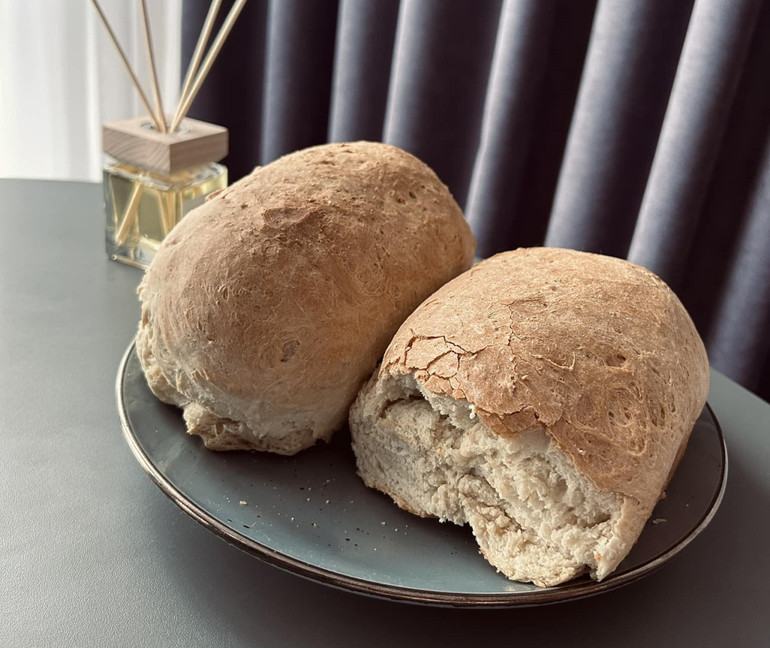
The bread Valeria baked after her capture/Facebook
When “Nava” was captured, the Russians constantly repeated that the defenders of Mariupol were not waiting in Ukraine. They wanted the fighters to despair and not understand if they had anywhere to return. But the military still supported each other.
“I couldn’t believe that my friends and acquaintances stopped fighting for me, that they forgot me. I was scared only because I didn’t know what was happening in Ukraine and whether there was anyone waiting for me.
Upon my return, I saw what actions were held in support of us. Some of them were particularly poignant, emotional, such as “Christmas without Azov”. Photos, posters and everything else gave the understanding that I was expected. It was a very pleasant shock and very powerful psychologically supported
And even if it didn’t speed up the exchange, it helped me emotionally. I saw how much they worried and fought for me.” – is shared by the military.
Valeriya returned to Ukraine as part of the exchange on April 10, 2023. First when meeting with close people, she was confused.
“It is very difficult to spend four and a half months in Taganrog, and then another seven – in a cell where you hardly see people. So I was only able to switch over and start communicating with people normally over time.
I just wanted to wake up in the apartment, stand barefoot on the floor, make myself a coffee, make a sandwich and spend at least one normal morning like that.”the woman says.
Valeriya is now a reserve officer of the Armed Forces of Ukraine. After returning from captivity, she was a communications adviser to the commander of the Special Operations Forces of the Armed Forces of Ukraine, and now continues the information struggle in a different way.
“During hostilities, I always recorded what was happening, wrote texts. Now I am quite often abroad together with the Coordination Headquarters. To show that all countries should fight for the release of our prisoners of war, help Ukraine with weapons and fight against the aggressor,I tell about the terrible fate of those who are in captivity, about myself.
Now my main task is work at YOUkraine hub. It — the first hub for former prisoners of war in Ukraine, created by former prisoners of war. Here we meet, discuss what worries us, support each other.” – says Valeria.
The book about captivity is also part of the information struggle. Soon Valeria plans to write the next one (“Azovstal. Steel press service”), where she will talk about her brothers.
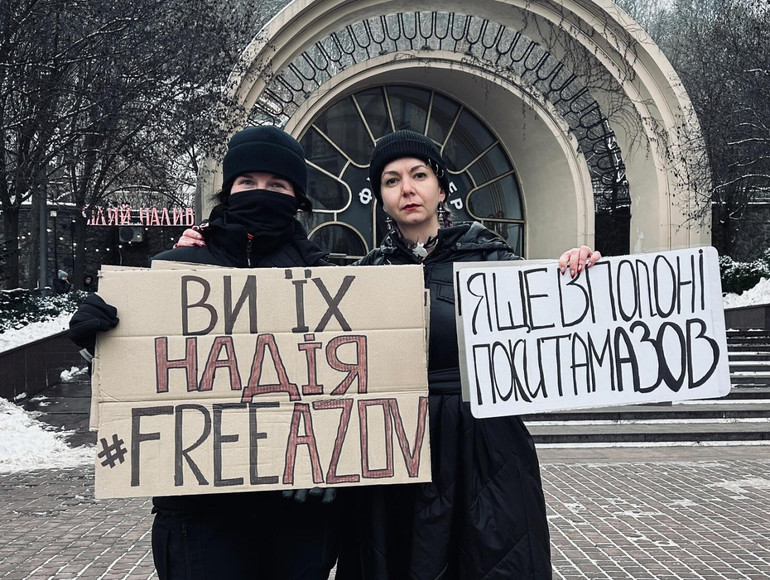
Valeria urges everyone to go to rallies and remind about the prisoners
The most important thing for “Nava” is to help the fighters at the front and those who remain in captivity. The struggle gives herill.
“It so happened that since childhood I had no support and built my life on my own. I also described this in the book so that people could understand me.
It is a great luxury to let go and indulge in sad, terrible, dark moods. But I just don’t have that right. Now, as far as I’m concerned, no one has it. Now is the historic time of the struggle for the will of Ukraine, the formation of a nation, and I have to continue this struggle.
I don’t want to spend this part of my life, no matter how long it is, with my hands down. It’s nice to fight, to move on, to be active, to have reasons to laugh. And you can suffer and die at any moment.” – says Valeria.
Why should Ukrainians read the book “Polon”? The defender of Mariupol answers this question as follows:
“Very often, people do not know how to properly communicate with former prisoners of war, they ask incorrect, traumatic questions.
Reading the book will help you understand a little about what happens to such people. This should be read in order to understand that our struggle must continue. We cannot stop what is described in the book from happening to you and your children.” Valeriya addresses the readers.
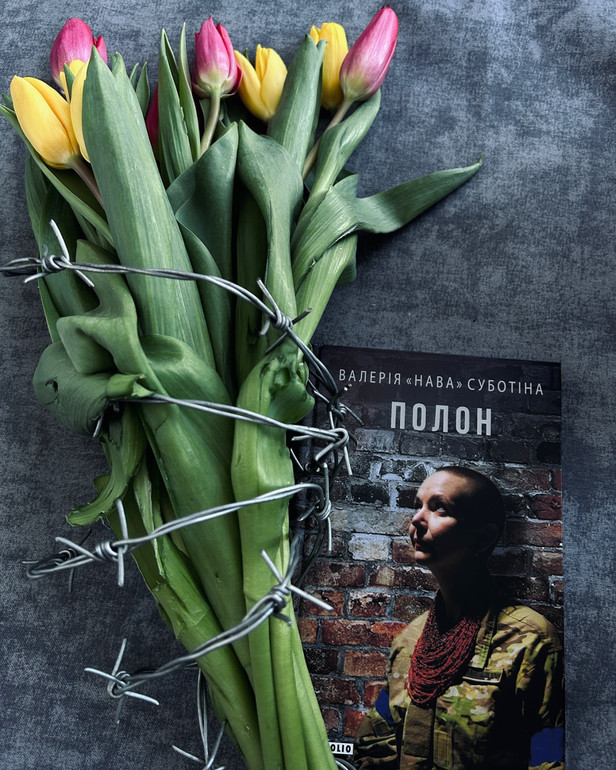
“Nava” hopes to translate the book into foreign languages.
“Several people told me that the book was easy to read. I tried to make it emotionally accessible to everyone. I really hope for its translation into English. But for this it is important that the sales are at a sufficiently good level.
“Folio” publishing house went to the meeting, made it inexpensive. Because this is not some profitable project, but rather an informational one. It is very important to translate the book so that it is read not only in Ukraine, but also all over the world. I hope that we will succeed. And I want to emphasize that the main purpose of this book is the struggle for those who are still in captivity.”– adds Valeriya.
The book is available for pre-order on the Folio publisher’s website, and you can also purchase its online version.
[ad_2]
Original Source Link











